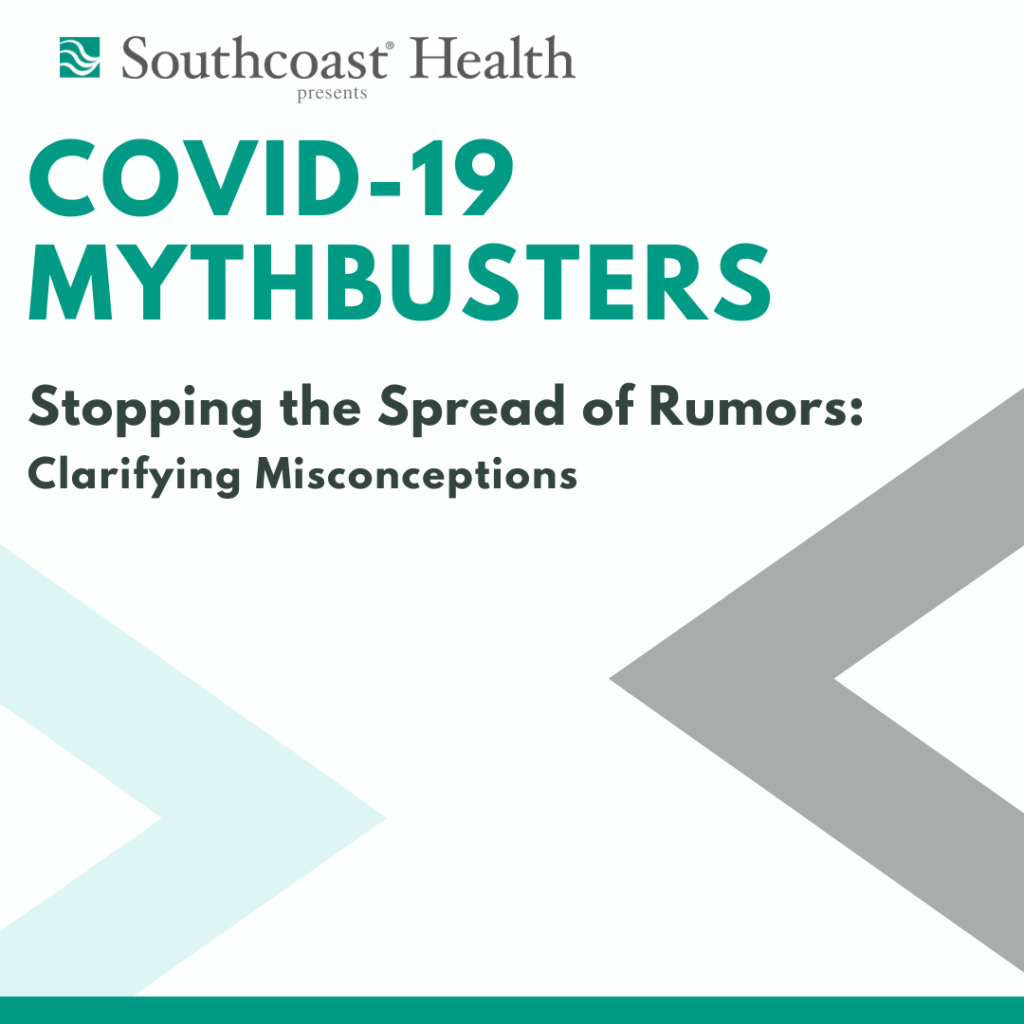Community
Mythbuster – Reducing the spread of germs & rumors around COVID-19

1. Covid-19 only affects older people
Currently, those at the highest risk of infection are people who have had prolonged, unprotected close contact with a patient with symptomatic, confirmed COVID-19. Also, those who live in or have recently been to areas with sustained transmission are at the highest risk. It is possible that older adults and people who have underlying chronic medical conditions, such as immuno-compromising conditions, may be at risk for more severe outcomes.
2. Individual races or ethnicity are at higher risk of contracting Covid-19 virus.
Any individual, no matter their race or ethnicity, can be susceptible to COVID-19.
3. Wearing a facemask meant for healthcare workers is the only mask that will protect me from contracting COVID-19 virus.
The CDC recommends wearing cloth face coverings in public settings where other social distancing measures are difficult to maintain (e.g., grocery stores and pharmacies), especially in areas of significant community-based transmission.
4. Vaccines against pneumonia will protect you against COVID-19 virus.
Vaccines against pneumonia, such as pneumococcal vaccine and influenza type B vaccine, do not protect against the COVID-19 virus.
5. There are specific medicines and vaccines to prevent or treat COVID-19 virus.
To date, there are no specific medicine or vaccines recommended to prevent or treat COVID-19.
6. Spraying alcohol or chlorine all over your body will kill the COVID-19 virus.
Spraying alcohol or chlorine all over your body will not kill viruses that have already entered your body. Spraying such substances can be harmful to clothes or mucous membranes (i.e., eyes, mouth).
7. Using a saline rinse frequently for your nose or throat will help prevent infection.
There is no evidence that regularly rinsing the nose with saline or gargling with salt water has protected people from infection.
8. Warm weather will stop the outbreak of COVID-19
It is not yet known whether temperature and weather impact the spread of COVID-19. Some other viruses, like the common cold and flu, spread more during cold weather months but that does not mean it is impossible to become sick with these viruses during other months.
9. My pets can become sick with COVID-19
While this virus seems to have emerged from an animal source, it is now spreading from person-to-person. To date, CDC has not received any reports of pets or other animals becoming sick with COVID-19. At this time, there is no evidence that companion animals including pets can spread COVID-19.
10. Ordering or buying products shipped from China will make a person sick
Currently there is no evidence to support transmission of COVID-19 associated with imported goods. In general, because of poor survivability of these coronaviruses on surfaces, there is likely very low risk of spread from products or packaging that are shipped over a period of days or weeks at ambient temperatures.
